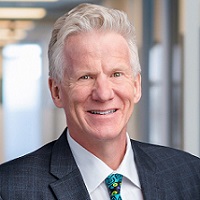 By Nick van Terheyden aka Dr Nick, Principal, ECG Management Consulting
By Nick van Terheyden aka Dr Nick, Principal, ECG Management Consulting
Twitter: @drnic1
Host of Healthcare Upside Down – #HCupsidedown
Nearly one in five adults in the United States experience some form of mental illness in their lives. The conditions and severity vary widely, and they are increasingly being seen in younger age groups—impacting children in their formative years, when neither their brains nor their coping mechanisms are fully developed.
Factor in the pandemic, which created strains in our work, family, and social worlds, and the inevitable result is even more stress that manifests in increasing numbers of people experiencing mental health issues and associated disorders of substance abuse and addiction. The opioid crisis preceded COVID-19, and early indicators suggest an acceleration of overdose deaths during the pandemic.
Episode NOW on Demand
We are a product of our community, and supporting everyone in it is our collective responsibility. That support comes in many forms but starts with acknowledging mental illness as a disease like any other—it may not come with a clear cause, like a virus or cancer cell, but it requires the same understanding and acceptance.
Tim Doran is the founder of Praesum Healthcare. He has focused his career on making behavioral healthcare available to as many people as possible, but even that wasn’t enough to spare his family from a tragedy—one that keeps occurring throughout the US. Here are a few excerpts from this episode of Healthcare Upside/Down.
Influences on a young mind.
“Prior to the internet expanding, a young adult was influenced by their family, their classmates, their neighbors, and maybe teammates in a sport. Then the internet came about. And [with] Facebook, Twitter, all of these other influences…they’re gaining access to things that are really outside of their neighborhood, which is causing them to act out, to see the world differently, to be depressed, to judge themselves, to look at themselves differently. You carry that on from the age of 8, to 14, to an 18-year-old—those ages are hard enough—and then you take it into adulthood. By the time people are 30, I would say most families have someone who was undiagnosed with behavioral health, mental health, or substance abuse issues.”
A personal tragedy.
“I have four children. My youngest, unfortunately, was afflicted by this disease, both behavioral issues and a substance abuse problem. He’s 18 years old. And unfortunately, [earlier] this year, he died of an overdose of fentanyl. I have access to the best care in the world, and he went to all of it. Unfortunately, that’s how difficult it is to fight mental health issues. I can deal with a drug problem. But I cannot stop murder through fentanyl.”
Telehealth and the next big breakthrough.
“COVID is really when people could, in a private setting, get [care] through telehealth. As someone who witnessed firsthand, it was a breakthrough for behavioral health because there’s a barrier to entry—if a therapist is $500 an hour, most people can’t afford that. Telehealth enabled those prices to come down dramatically, encouraged payers to price it so that it was affordable for most people. And [patients] didn’t have to get in the car and go there be in person. Telehealth isn’t the solution by itself; you always need the option of brick and mortar, but it’s an entry point
The next big breakthrough is going to be primary care doctors’ practices joining forces with the behavioral health industry in collaboration, whether it’s through EMRs, having an affiliation, and insurance companies opening a network, where through telehealth, it looks like it’s going to be affordable.”
About the Show
The US spends more on healthcare per capita than any other country on the planet. So why don’t we have superior outcomes? Why haven’t the principles of capitalism prevailed? And why do American consumers have so much trouble accessing and paying for healthcare? Dive into these and other issues on Healthcare Upside/Down with ECG principal Dr. Nick van Terheyden and guest panelists as they discuss the upsides and downsides of healthcare in the US, and how to make the system work for everyone.
This article was originally published on the ECG Management Consulting blog and is republished here with permission.
